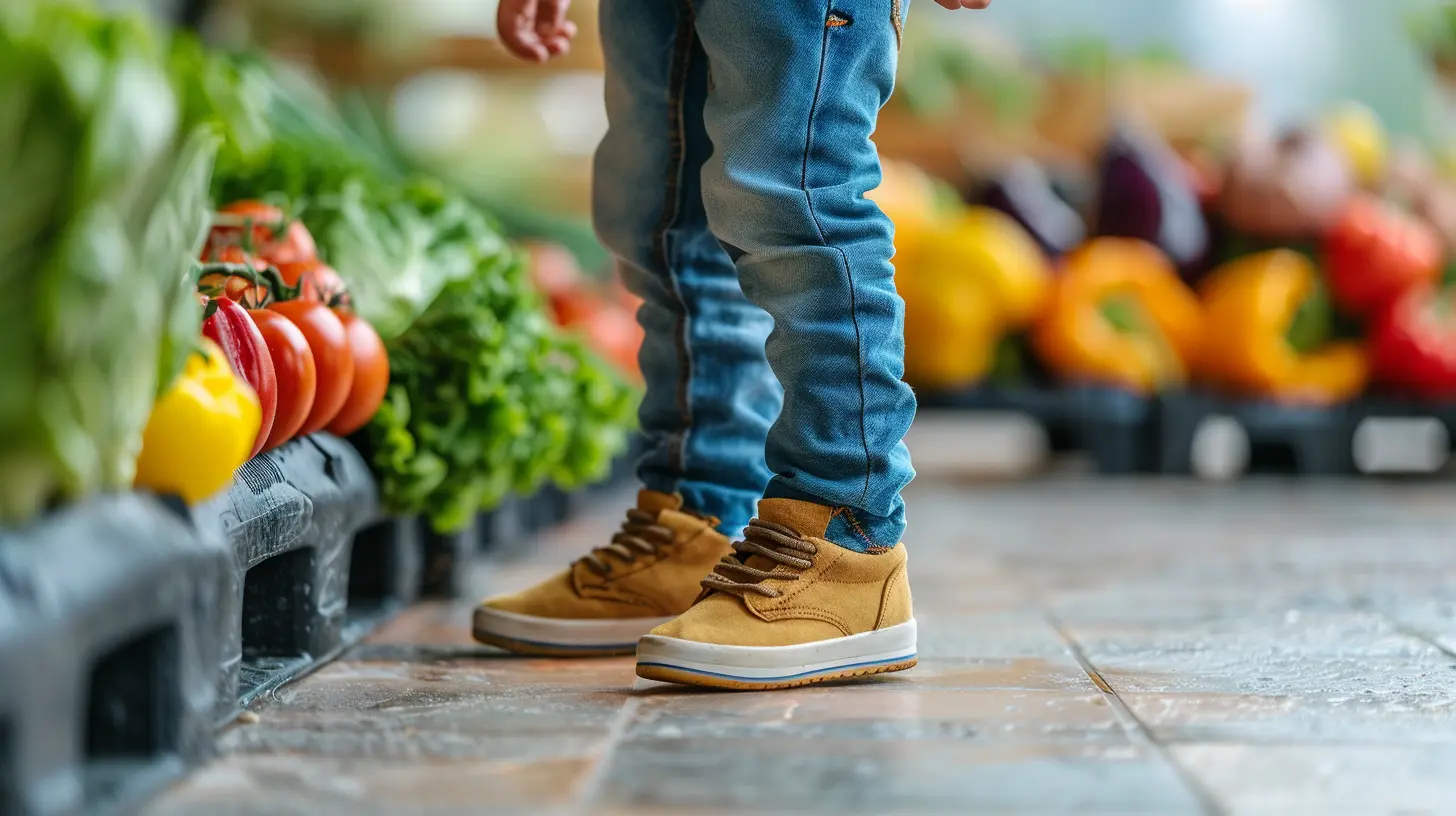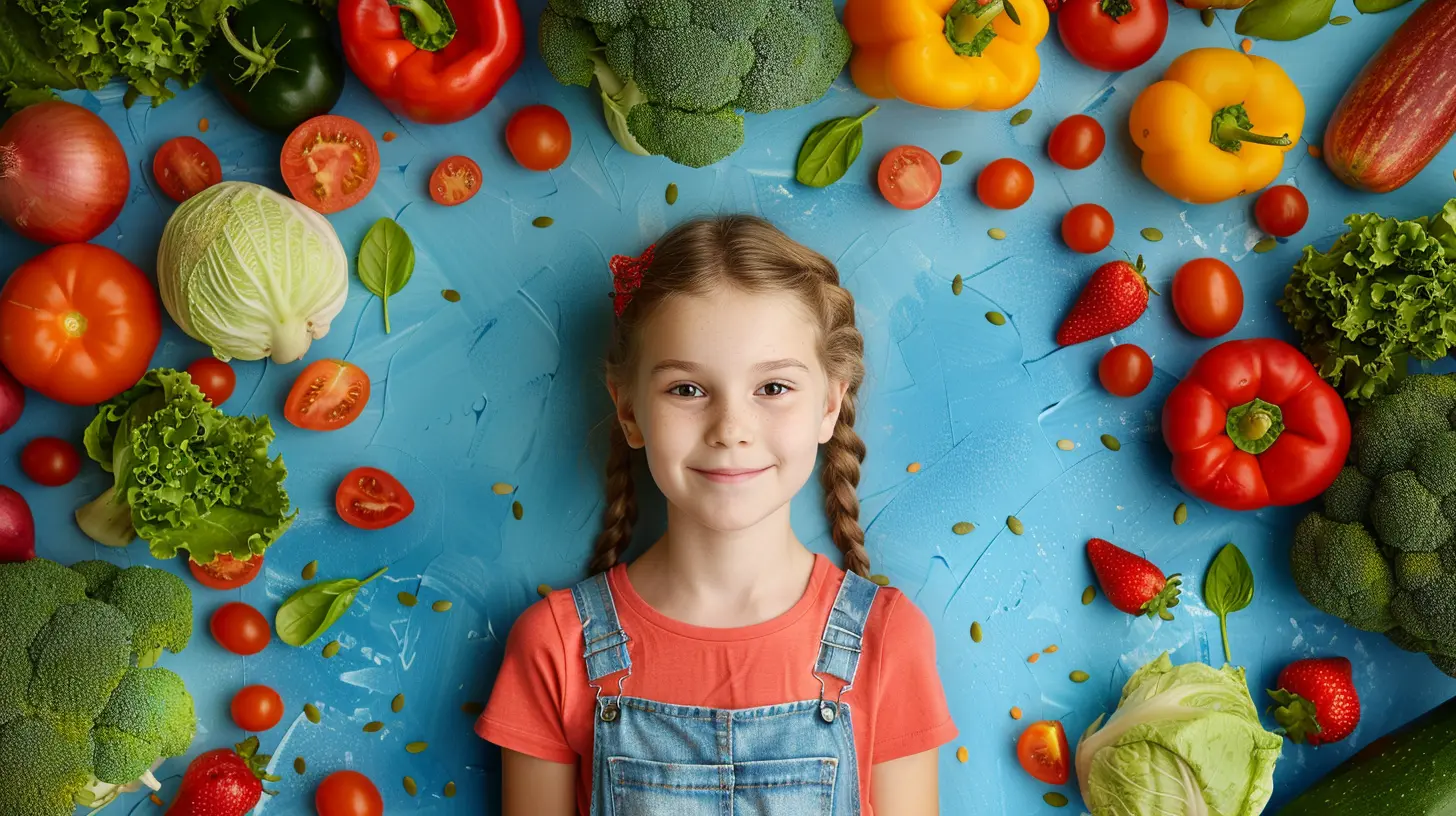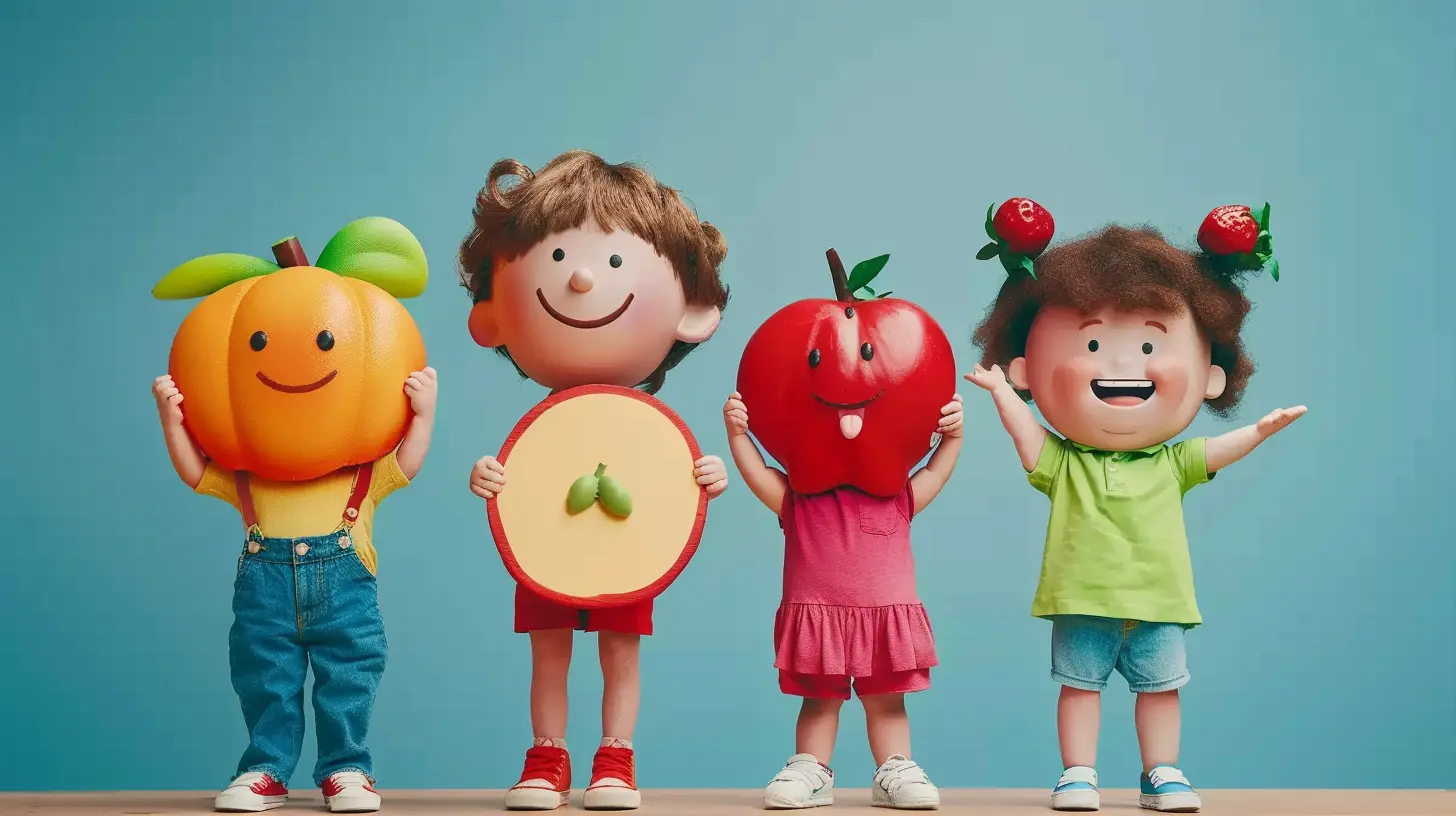How to Raise Body-Positive Kids Without Focusing on Weight
3 August 2025
Raising kids in a world obsessed with filters, Photoshop, and unrealistic beauty standards is like trying to keep a toddler from eating dirt—nearly impossible. But here's the good news: You can raise body-positive kids without making weight the focus of every mealtime conversation.
In fact, the last thing we want is for our kids to start seeing their bodies as math problems, constantly calculating calories, pounds, and inches. Instead, let's teach them to love and appreciate their bodies for all the cool things they can do. So, how do we make that magic happen? Buckle up, because we're diving into the world of body positivity, parenting wins, and a whole lot of love. 
1. Ditch the Diet Talk
First things first—if we want our kids to have a healthy relationship with their bodies, we need to chill with the diet talk.Ever noticed how adults casually throw around phrases like:
🚫 "Ugh, I need to lose weight after that meal."
🚫 "I was so bad today—I ate two slices of cake!"
🚫 "I can’t have that; I'm on a diet."
Kids soak up everything around them, including the way we talk about our own bodies. If they constantly hear negative self-talk, they’ll start believing their own bodies need "fixing" too. Instead of obsessing over weight, focus on how food fuels our bodies. Try saying:
✅ "This sandwich will give me energy to play with you at the park!"
✅ "I love how this meal makes me feel strong and happy."
By modeling a positive attitude, we help our kids see food as nourishment instead of something to be feared or controlled. 
2. Celebrate What Bodies Can Do
Instead of praising bodies based on size, let's shift the focus to what they can do.🏃♂️ "Wow, your legs helped you run so fast!"
🖍️ "Your hands are amazing—they help you draw beautiful pictures!"
💪 "Your body is strong—it lets you climb the monkey bars like a champ!"
By celebrating strength, flexibility, creativity, and movement, we teach kids that bodies aren’t just for looking at—they’re for living in. 
3. Ban the "Bad Food vs. Good Food" Mentality
Ah, the classic food morality trap. One minute, you're enjoying ice cream; the next, you're questioning your life choices. But why do we label food as good or bad?Instead of saying:
🚫 "Candy is bad for you."
🚫 "Vegetables are good, but ice cream is bad."
Try:
✅ "Some foods give us quick energy, and some give us long-lasting energy!"
✅ "Eating a variety of foods helps our bodies feel their best!"
By eliminating the guilt factor, we stop food from becoming this big emotional battleground. Because let’s be real—telling a toddler they can’t have ice cream only makes them want it more. 
4. Teach Body Diversity (Because We Don’t All Look Like Stick Figures)
Imagine a world where every flower looked the same. Boring, right? The same goes for bodies! Some are tall, some are short. Some are curvy, some are slim. Every body is different, and that’s a good thing.Introduce your kids to body diversity through:
📚 Books that feature characters of all shapes and sizes
📺 TV shows and movies with diverse body representation
🗣️ Conversations about how no two people are built exactly alike
When kids see all kinds of bodies being celebrated, they learn to appreciate their own unique shape—whether it’s big, small, or somewhere in between.
5. Encourage Joyful Movement (Not Punishment Workouts)
Exercise should never feel like a chore—or worse, a punishment for eating too many cookies. Instead, it should be about joyful movement!Help your child find activities that make them feel good, like:
🏀 Playing basketball with friends
💃 Dancing around the living room like a goofball
🚴♂️ Riding their bike through the park
🤸♀️ Learning to do cartwheels (even if it takes 100 tries)
When exercise is fun, kids naturally want to move more—without obsessing over burning calories or "working off" their meals.
6. Be Mindful of Media Messages
Let’s be honest—the media is full of unrealistic beauty standards. If you don’t believe me, try finding a cartoon mom who isn’t shaped like a supermodel. (I’ll wait.)Talk to your kids about what they see in movies, magazines, and social media. Ask questions like:
🗣️ "Do you think everyone looks like that in real life?"
🗣️ "How does that commercial make you feel about yourself?"
🗣️ "What do you think real beauty looks like?"
By teaching kids to question media messages, we help them see through the Photoshop and embrace their own natural beauty.
7. Compliment Beyond Appearance
Sure, it’s nice to hear, "You look pretty!" But if that’s the only compliment kids hear, they’ll start to think their worth is tied to their looks.Instead of solely focusing on appearance, try complimenting their:
🌟 Kindness ("You have such a big heart!")
🌟 Creativity ("Your imagination is amazing.")
🌟 Effort ("You worked so hard on that project!")
🌟 Humor ("You make me laugh so much!")
When kids know they're valued for who they are, not just how they look, they build confidence that goes way beyond the mirror.
8. Teach Self-Love by Practicing It Yourself
Ah, the ultimate parenting truth: Kids will copy us, whether we like it or not. If they see us nitpicking our thighs in the mirror or groaning about wrinkles, guess what? They’ll start doing the same.So, let’s make a pact right now—no more:
🚫 Body-bashing in front of the kids
🚫 Sucking in our stomachs every time we pass a mirror
🚫 Complaining about "flaws" that aren’t actually flaws
Instead, let them see you:
✅ Wearing the swimsuit (yes, even if you feel self-conscious)
✅ Eating the cake with zero guilt
✅ Speaking kindly about your own body
Because at the end of the day, the way we love ourselves teaches our kids how to love themselves.
9. Keep the Conversation Going
Body positivity isn’t a one-time talk—it’s an ongoing conversation.Encourage your kids to ask questions, share their feelings, and talk openly about their bodies. And when the tough topics come up (because they will), be there with open ears and an open heart.
Wrapping It Up
Raising body-positive kids isn’t about pretending weight doesn’t exist. It’s about shifting the focus from how bodies look to how bodies feel and function.By embracing body diversity, eliminating diet culture, and teaching kids to love themselves—flaws and all—we give them a foundation of confidence that will last a lifetime.
So, next time you catch yourself saying, "I shouldn’t eat this…"—pause. Reframe. And remember: The best lesson we can teach our kids is that their worth isn’t measured in pounds, but in kindness, joy, and self-love.
all images in this post were generated using AI tools
Category:
Kids NutritionAuthor:

Liam Huffman
Discussion
rate this article
1 comments
Gabrielle McCaw
I'm intrigued by the approach of raising body-positive kids without emphasizing weight. How can we best encourage self-acceptance and healthy habits in a way that promotes confidence?
August 13, 2025 at 3:32 PM

Liam Huffman
Encourage self-acceptance by celebrating individuality and promoting healthy habits as a means of self-care, rather than for weight loss. Foster open discussions about body positivity, model healthy behaviors, and focus on abilities and strengths to build confidence.


